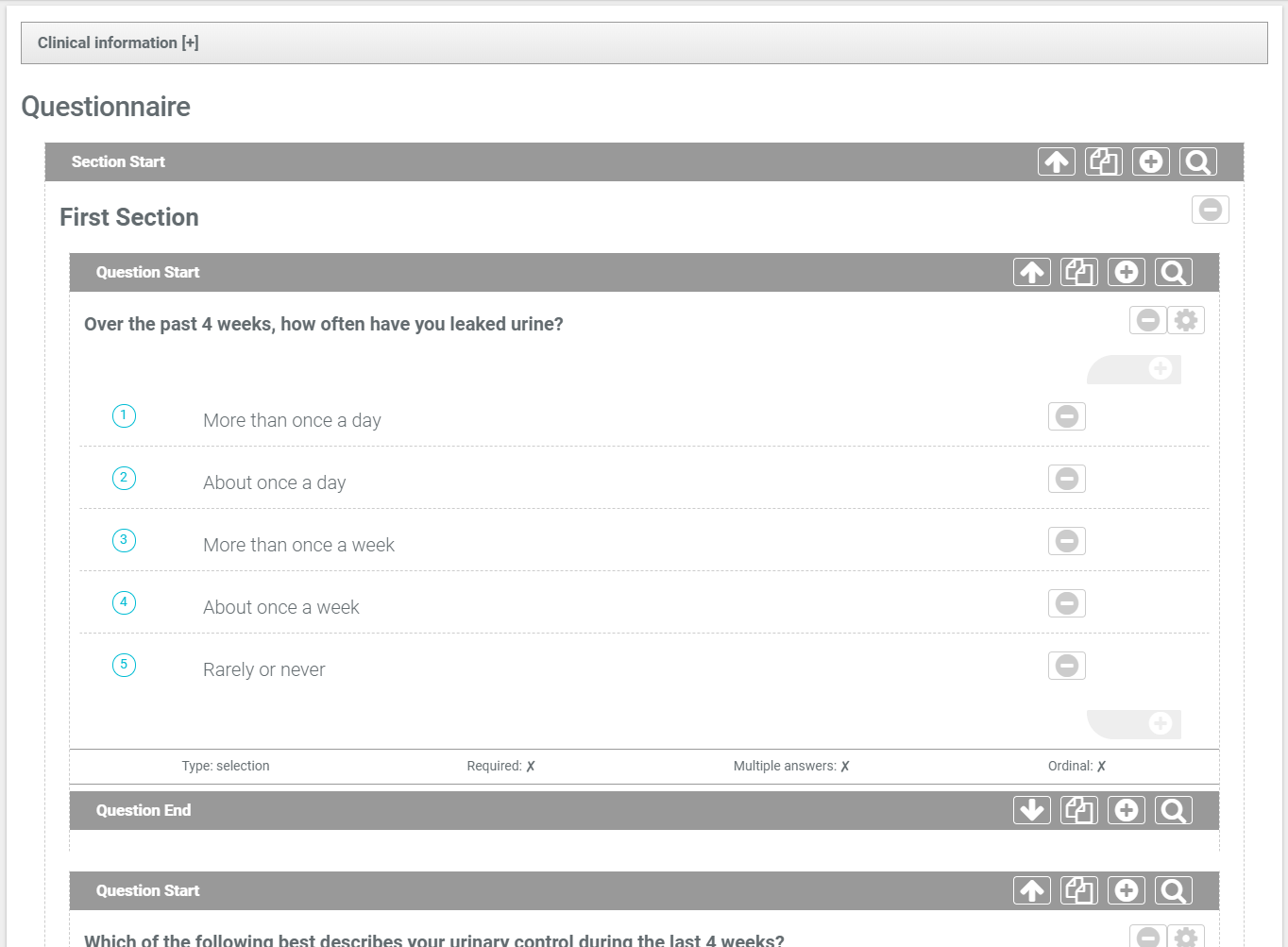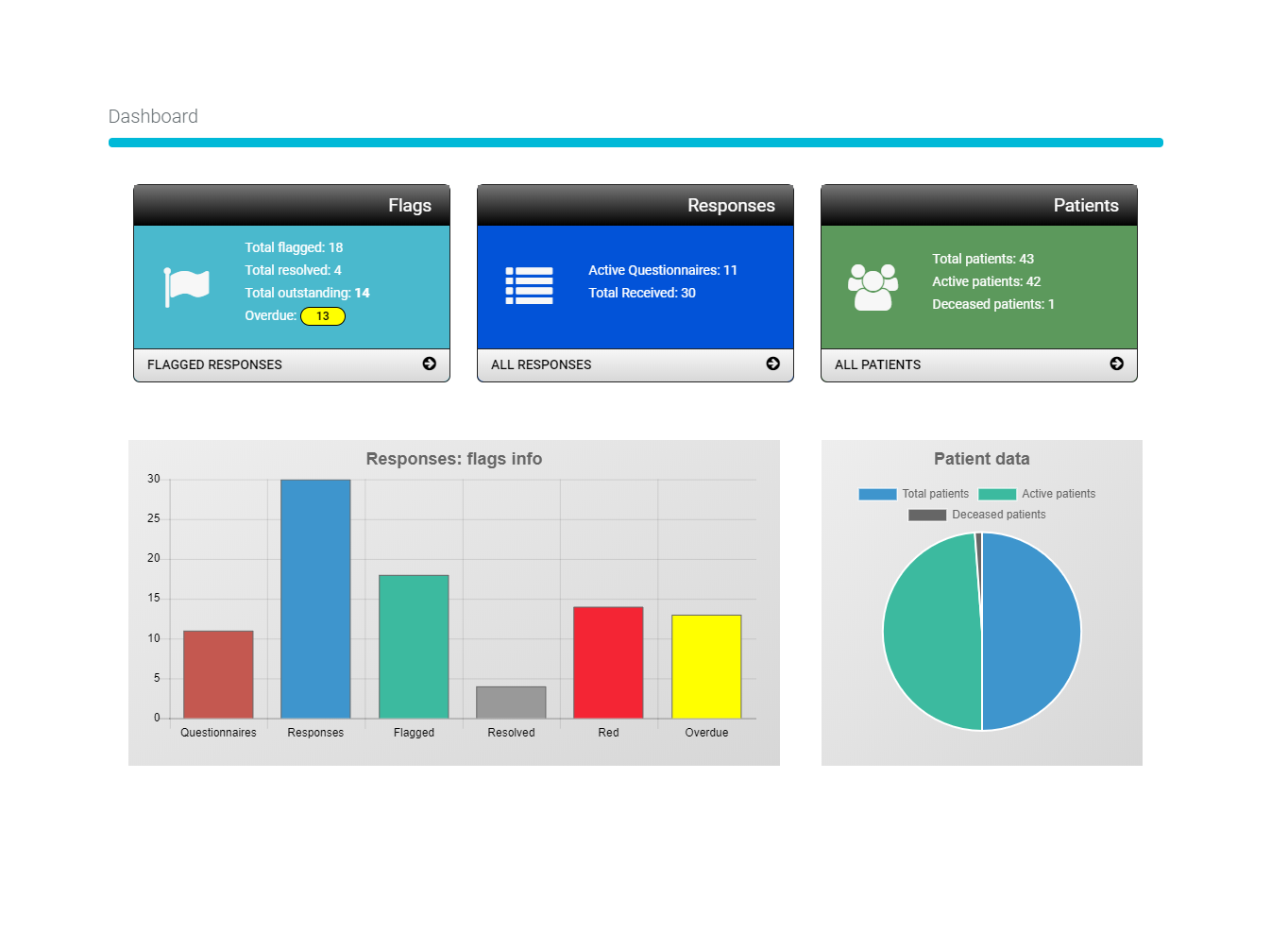
Penguin is a web-based platform that allows clinicians to automatically ask patients systematic questions (e.g. PROMs, OTR) based on their diagnosis and course of treatment. The patient can answer these questions from a smartphone/tablet/computer at home.
In real-time, the system then alerts clinical teams to adverse events, identifying clinical need when and where it is required.

Benefits
Reduce unnecessary appointments
By replacing systematic, routine, time-based follow-up appointments with needs-based ones. Patients will no longer need to come in just to say “I’m fine.”
Reduce DNA rates
With appointments being needs-based, patients know that they are attending for a good reason rather than – what can feel like – a formality.
Cut patient waiting times
By reducing unnecessary appointments, capacity is freed up so that clinicians can finally spend more time with the patients that require more attention.
Identify problems earlier
Continuous remote assessment means that patients won’t wait for things to get worse or wait for their next routine appointment to flag an issue. Any potential problems will be flagged to the clinician immediately.
Track patient outcomes
Hospital staff are provided with more information and have a better understanding of their patients’ needs. More information also helps determine what treatments are most effective.
Reduce costs
Reducing unnecessary appointments and having fewer patients repeatedly coming through the door will lead to reduced costs in terms of clinician time, administrative time, and hospital infrastructure.
Improved patient experience
Patients receive more reassurance and experience less of the anxiety that is associated with hospital visits. Signposting will help ensure that patients get the support they need.
Increased self-management
Patients receive advice so that they can improve their health themselves. In many clinical cases, this results in better clinical outcomes and reduced costs.
Reduce A&E admissions
Any cause for concern is flagged by Penguin to the relevant clinical team, so A&E is no longer the first port-of-call in some cases.
Safe and secure connection
We use NHS-approved N3 servers to ensure that all data is stored securely, and we comply with the gold standard of information governance. Account permissions can be set locally so that only the right people get access to sensitive patient information.
Easy access
IT teams breathe a sigh of relief when they see how easy it is to set up. Penguin is web-based, so no additional software nor hardware is required – this is practically ‘plug and play’.
High interoperability
Penguin can draw on demographics via the Spine or other systems, so there’s no need to import patient information manually.
Business case
We can help you make a business case for bringing Penguin to your workplace.
Features
Casper was initially developed in an NHS hospital and subsequently spun out. Since then, it has been through years of development in collaboration with its users, and we are continuously making improvements.
Web-based
Casper can be launched on any browser your hospital’s secure network, provided you have the credentials.
N3 security
Casper is hosted on the super-secure servers that the NHS uses to store sensitive patient information.
ISO accredited company
Cievert is ISO 9001:2015 and ISO 27001:2017 accredited.
“Having an electronic system to collect that sort of information is an ideal solution.“

Macmillan Consultant Radiographer

Spelling the end of 'one-size-fits-all'
Newcastle • Manchester • London
+44 (0)161 768 0116
Copyright © 2021 Evergreen Health Solutions Ltd.
An Evergreen Life Company



